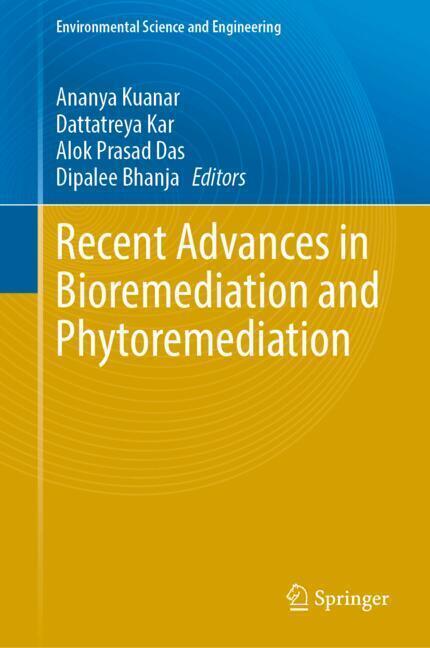
Zustellung: Do, 26.06. - Mi, 02.07.
Versand in 5 Wochen
VersandkostenfreiBestellen & in Filiale abholen:
This book focuses on a number of recently created and successfully used bio/phytoremediation technologies for pollution reduction and control that were not given more thorough discussion in earlier works. The earth's crust contains heavy metals naturally as one of its constituents. The main cause of the discharge of harmful metals into the soil and aquatic habitats, aside from natural sources, is man-made activity, particularly industrialization. As a result of various human activities, excessive amounts of heavy metals-including chromium, arsenic, lead, mercury, copper, and zinc-are released into the environment. These metals eventually contaminate agricultural soils and water bodies and have a negative effect on the ecosystem. Additionally, even at very low concentrations, heavy metal poses a dangerous threat to both humans and animals due to its tremendous toxicity. Appropriate remediation technology is needed to address the problems caused by toxic heavy metal contamination. The technology should be affordable, eco-friendly, and provide long-term solutions. Such required properties are offered by biological remediation approaches, such as microbial and phytoremediation, for the treatment of heavy metal contamination. The discussion of biological remediation technologies as a sustainable method involves several techniques involved in the removal of harmful heavy metals.
Inhaltsverzeichnis
Bioremediation from Soil and Aquatic Environment. - Phytoremediation of environmental emerging pollutants. - Advanced Bioremediation Techniques for Emerging Pollutants. - Phytoremediation as an sustainable solution for pollution remediation. - Novel Bioremediation approaches with circular economic. - Phytoremediation' s Function in the Remediation of Heavy Metal-Polluted Soils. - Challenges and opportunities for effective Bioremediation. - Advanced and smart technology for Bioremediation. - Bioremediation of Landfills for pollution abatement. - Biomedical Waste Contaminated Sites Phytoremediation. - Improved Crops and Sustainable Soil Health: New Bioremediation Trends. - Emerging and Advanced green energy technologies for pollution reduction. - Green technologies for sustainable waste management. - Sustainable Technology in the development of novel processes and products. - Bioremediation for waste resources management and sustainable economy.
Produktdetails
Erscheinungsdatum
12. Juli 2025
Sprache
englisch
Seitenanzahl
695
Reihe
Environmental Science and Engineering
Herausgegeben von
Ananya Kuanar, Dattatreya Kar, Alok Prasad Das, Dipalee Bhanja
Verlag/Hersteller
Produktart
gebunden
Abbildungen
XVIII, 695 p. 51 illus., 49 illus. in color.
ISBN
9783031778834
Entdecken Sie mehr
Bewertungen
0 Bewertungen
Es wurden noch keine Bewertungen abgegeben. Schreiben Sie die erste Bewertung zu "Recent Advances in Bioremediation and Phytoremediation" und helfen Sie damit anderen bei der Kaufentscheidung.










